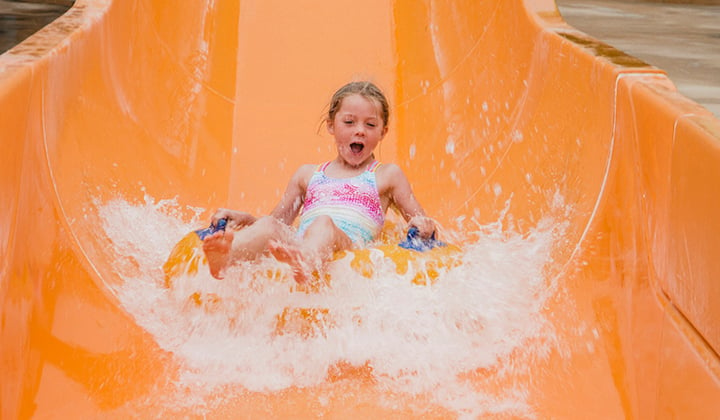
How many times have you already heard, “Mom! Dad! Can we go to the pool, please?” If you haven’t heard it yet, I’m sure you’ll hear it soon.
Swimming is one of the best highlights of summer for most kids. It’s a great way to beat the heat, stay active and have fun with friends. But one thing that is all too common during this time is catching a stomach bug. Here are some ways to keep the stomach bugs at bay while the kids play.
Every year, we hear about outbreaks of diarrheal illness related to waterparks, pools and lakes. Most of these are caused by hard-to-kill germs like cryptosporidium, E. coli and Giardia. Thanks to their tough outer shell and tiny size, some waterborne germs can survive for hours or days, even in chlorinated pools and water playgrounds.
Why do you get sick after swimming?
Can you guess the No. 1 way these germs get in the water? You got it—No. 2. It only takes small amounts of poop to contaminate a large amount of water.
The CDC estimates that people have about 0.14 grams of poop (about as much as a few grains of sand) on their bodies at any given time. And if you’ve ever potty-trained a kid who insists on wiping by themselves, you know there’s probably a bit more than that on those bottoms.
When poop gets in the water we swim and play in, it’s easy to spread those illnesses to others.
How to avoid getting sick from swimming
With a few tips to help keep you safe from swimming-related illnesses, you can enjoy having fun in the water as a family. Here are some ways to stay safe from poop germs while swimming.
- Don’t swallow the water. Easier said than done with little kids, right? But try your best to teach kids not to swallow any water that didn’t come from a faucet or bottle.
- Stay out of the water if you’re sick. If you or your child has diarrhea, do not go swimming. This includes pools, hot tubs, water playgrounds and anywhere else with shared swimming facilities.
- Take kids to the bathroom. Regular bathroom breaks and diaper checks can help protect you and other swimmers from poop germs entering the water. If you’ve ever made the mistake of putting a swim diaper on before arriving at the pool and ended up with a pee-soaked car seat, you know they do not absorb much liquid and are only designed to keep solid poop out of the water.
- Shower before you swim. Just a quick, 1-minute shower removes most of the dirt, sweat and oils from your body and helps keep pools cleaner.
If you have a home swimming pool or hot tub, use test strips to check the chlorine or bromine level and pH on a regular basis. For water tables and kiddie pools, empty or cover them after playing and change the water frequently.
How to care for a child with diarrhea
So, what do you do if your child does get a stomach bug and diarrhea? In most cases, diarrhea from one of these waterborne germs will go away on its own within 2 weeks and your child will not need medical care. Dehydration is the biggest concern, so offer lots of liquids and keep a close eye on how much they are drinking and peeing. If your child looks especially pale, their eyes are sunken or they are acting listless and fatigued, it’s time to see your doctor.
